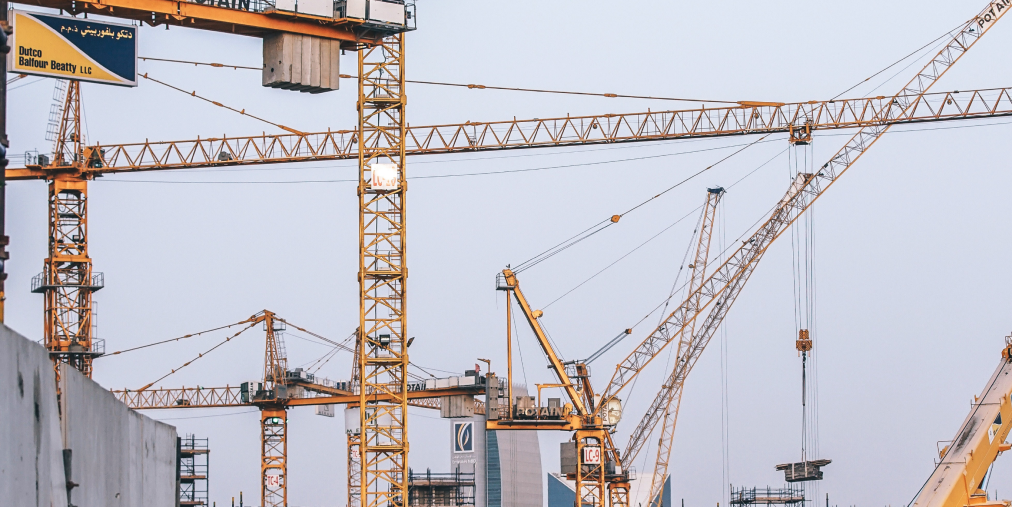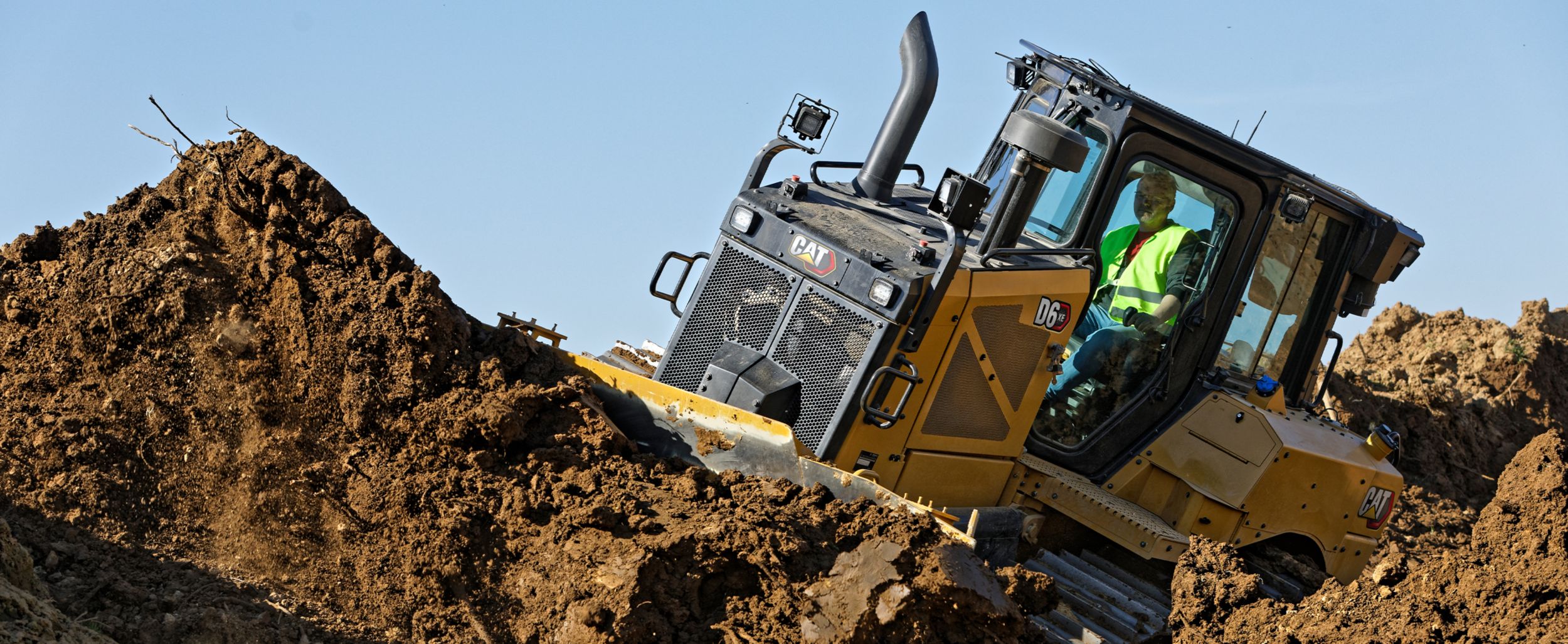Construction Equipment Rentals in Tuscaloosa AL: Everything You Required for Your Job Website
Construction Equipment Rentals in Tuscaloosa AL: Everything You Required for Your Job Website
Blog Article
Checking Out the Financial Advantages of Renting Building And Construction Devices Compared to Having It Long-Term
The choice between having and leasing building tools is essential for economic monitoring in the market. Leasing deals immediate cost savings and functional adaptability, allowing firms to assign resources more effectively. Understanding these subtleties is vital, specifically when taking into consideration exactly how they straighten with particular project requirements and economic techniques.

Price Comparison: Leasing Vs. Having
When evaluating the monetary implications of renting versus possessing building and construction equipment, a thorough cost comparison is crucial for making informed choices. The choice in between leasing and having can substantially affect a firm's lower line, and comprehending the linked costs is crucial.
Leasing building and construction devices typically includes reduced upfront prices, enabling services to designate resources to various other functional requirements. Rental agreements usually include versatile terms, allowing firms to accessibility progressed equipment without long-term commitments. This versatility can be specifically beneficial for temporary projects or changing workloads. Nevertheless, rental costs can collect gradually, potentially going beyond the expense of possession if equipment is required for an extensive duration.
Alternatively, having construction equipment needs a considerable preliminary financial investment, along with ongoing costs such as devaluation, insurance, and financing. While possession can cause long-lasting savings, it also binds resources and may not give the same degree of versatility as leasing. Additionally, having tools requires a commitment to its utilization, which may not constantly straighten with job needs.
Inevitably, the choice to possess or rent out should be based on a comprehensive evaluation of particular project needs, financial capacity, and long-lasting critical goals.

Maintenance Expenditures and Duties
The choice in between owning and renting out building and construction devices not just involves financial considerations however also includes continuous upkeep expenses and responsibilities. Owning equipment requires a considerable commitment to its upkeep, which includes regular examinations, repair work, and prospective upgrades. These responsibilities can swiftly collect, bring about unforeseen prices that can strain a budget.
On the other hand, when renting out devices, maintenance is commonly the obligation of the rental company. This plan allows professionals to prevent the monetary burden related to wear and tear, in addition to the logistical difficulties of organizing repair services. Rental agreements often include stipulations for maintenance, indicating that service providers can focus on finishing projects as opposed to bothering with equipment problem.
Moreover, the diverse series of equipment readily available for rent enables firms to pick the most recent designs with innovative modern technology, which can improve performance and performance - scissor lift rental in Tuscaloosa Al. By deciding for services, businesses can prevent the long-lasting responsibility of devices depreciation and the linked maintenance frustrations. Ultimately, reviewing maintenance expenditures and duties is vital for making a notified decision regarding whether to have or rent out construction equipment, considerably affecting general task expenses and operational performance

Devaluation Impact on Possession

A significant factor to take into consideration in the decision to own construction tools is the effect of depreciation on overall possession expenses. Depreciation stands for the decrease in worth of the equipment over time, affected by aspects such as use, deterioration, and advancements in innovation. As devices ages, its market price diminishes, which can significantly influence the owner's economic position when it comes time to offer or trade the equipment.
For construction firms, this devaluation can convert to substantial losses if the tools is not made use of to its compact wheel loader rental maximum capacity or if it lapses. Proprietors need to represent depreciation in their monetary estimates, which can lead to greater overall costs contrasted to renting out. Furthermore, the tax obligation implications of depreciation can be complex; while it might give some tax advantages, these are often balanced out by the fact of minimized resale value.
Inevitably, the burden of depreciation highlights the importance of recognizing the long-lasting monetary commitment involved in having construction tools. Business must carefully review exactly how frequently they will certainly use the tools and the possible economic effect of depreciation to make an educated choice about ownership versus renting.
Financial Versatility of Leasing
Renting out construction tools offers significant financial versatility, permitting firms to allot sources a lot more effectively. This versatility is my blog especially critical in a market identified by fluctuating job needs and varying work. By opting to rent out, companies can prevent the significant funding expense required for buying tools, maintaining capital for other functional requirements.
Additionally, renting out tools enables firms to tailor their tools selections to details task demands without the lasting dedication related to ownership. This means that organizations can conveniently scale their devices inventory up or down based upon current and anticipated project demands. Consequently, this versatility reduces the danger of over-investment in machinery that might end up being underutilized or obsolete in time.
An additional monetary advantage of renting is the potential for tax advantages. Rental settlements are commonly thought about business expenses, enabling instant tax deductions, unlike devaluation on owned and operated tools, which is topped several years. scissor lift rental in Tuscaloosa Al. This prompt expense recognition can further boost a company's cash position
Long-Term Task Considerations
When evaluating the long-lasting demands of a construction company, the choice in between renting and possessing equipment becomes more complicated. For tasks with prolonged timelines, acquiring equipment might seem useful due to the capacity for lower total prices.
The building sector is developing rapidly, with new devices offering boosted efficiency and security attributes. This adaptability is specifically useful for businesses that manage diverse jobs needing various kinds of devices.
Furthermore, financial security plays a critical role. Owning equipment typically entails substantial capital expense and depreciation concerns, while renting permits for even more predictable budgeting and capital. Ultimately, the selection between owning and renting out needs to be lined up with the critical objectives of the compaction equipment building and construction company, considering both existing and anticipated job needs.
Verdict
To conclude, renting building and construction devices provides significant economic advantages over lasting ownership. The lessened ahead of time expenses, removal of upkeep responsibilities, and evasion of devaluation contribute to boosted cash money flow and financial flexibility. scissor lift rental in Tuscaloosa Al. In addition, rental payments function as instant tax obligation reductions, even more profiting service providers. Eventually, the choice to lease instead of own aligns with the dynamic nature of building tasks, allowing for versatility and accessibility to the current tools without the monetary problems linked with possession.
As equipment ages, its market worth reduces, which can significantly influence the owner's economic setting when it comes time to offer or trade the tools.
Leasing construction tools supplies considerable financial adaptability, allowing companies to designate sources more effectively.Furthermore, renting out equipment allows business to tailor their devices selections to certain project needs without the long-term dedication associated with ownership.In final thought, renting out building and construction equipment supplies significant economic benefits over lasting possession. Eventually, the decision to rent out rather than very own aligns with the vibrant nature of construction tasks, permitting for versatility and accessibility to the newest tools without the monetary burdens linked with ownership.
Report this page